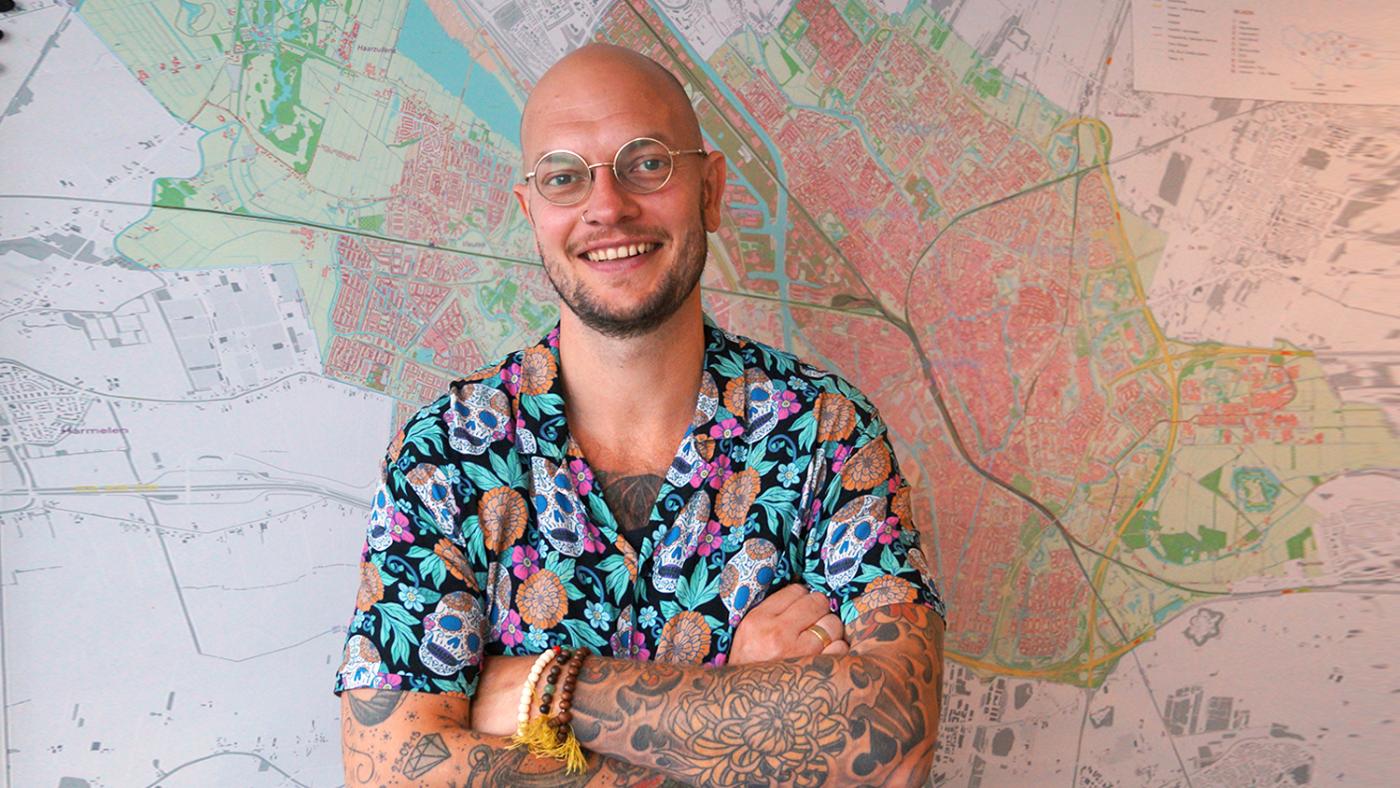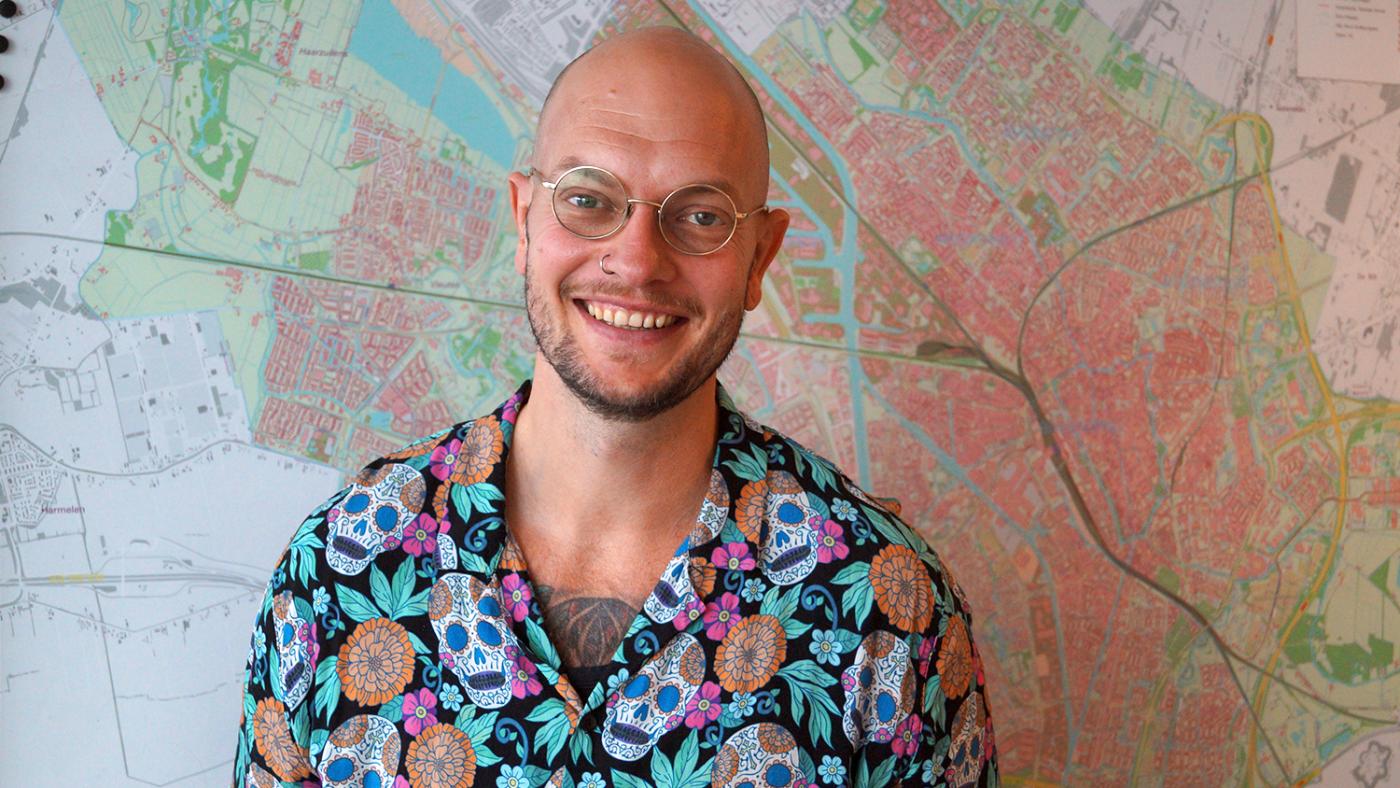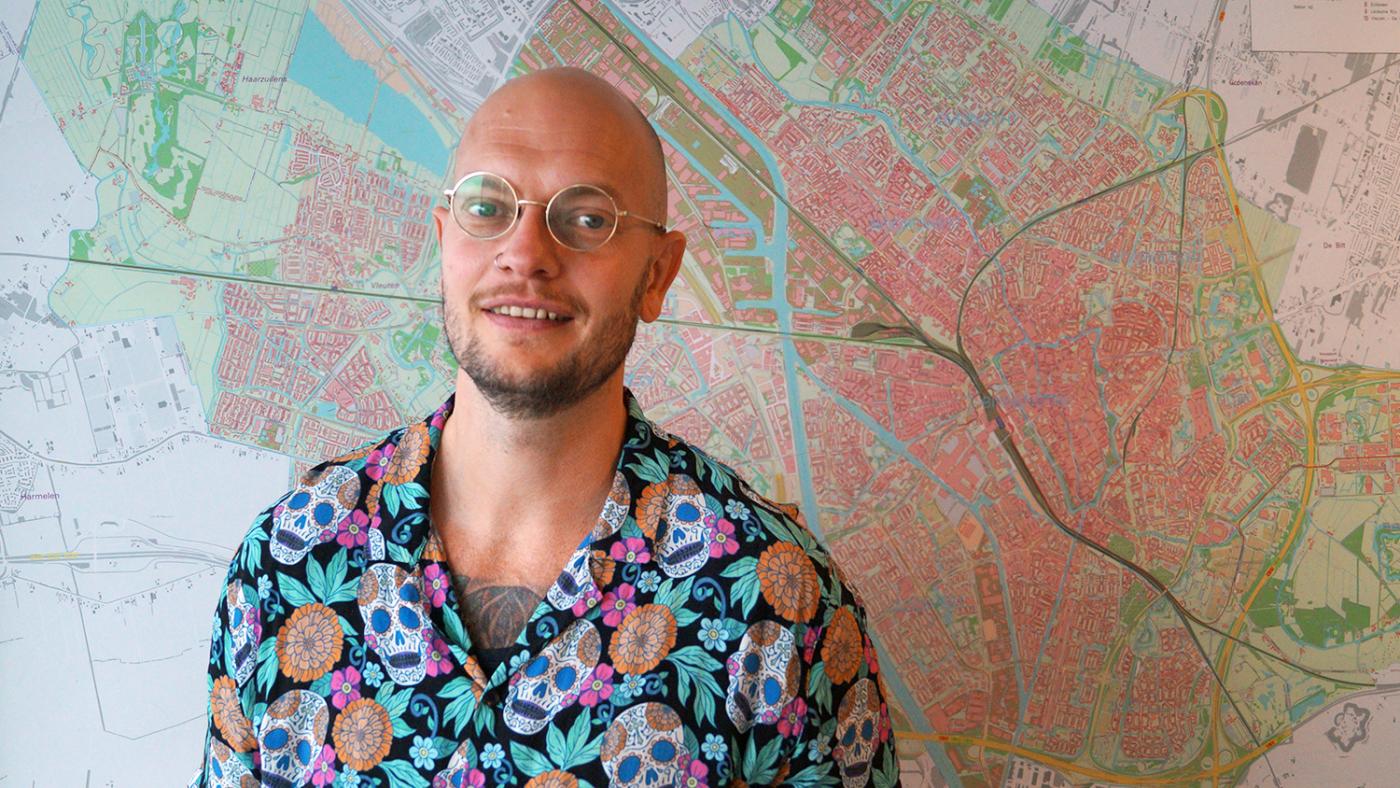Alderman wants rooms to become more affordable
‘Everyone is welcome in Utrecht except slumlords’

If there is one thing that grinds Dennis de Vries' gears, it's how slumlords have been taking advantage of students. The politician from the Labour Party (Dutch acronym: PvdA, Ed.) frequently joins inspections around the city. The municipality of Utrecht deploys surveillance teams who knock on student homes unannounced to check things out. "We ask them about their living conditions and verify the facilities in the house. How safe is it? How much rent are students paying? How is their relationship with the landlord? This way, we can get an overview of all the slumlords in the city."
"The last time I joined such a surprise visit, I was shocked. The students were living in a completely unsafe house and paying way too much for it. This shouldn't be happening. After the visit, the municipality goes after the slumlord and imposes fines that can amount to thousands of euros. In addition, we force the landlord to improve the situation in the building, making sure that we'll inspect it again later on. This way of working requires a lot of time and money, but the municipality considers this an important investment."
Anonymous reports
De Vries has many weapons at his disposal to go after slumlords. "Students can go to the huurteam (a free-of-charge service to verify whether your rent is too high, Ed.) themselves and the huurteam will inform them of the maximum price the landlord could ask for their room, based on a point system that takes into account the size of the room and facilities such as the kitchen and bathroom. The huurteam will also tell students how they can file a complaint against the landlord in order to bring the price down. Sometimes, tenants can even get part of their money back but that doesn't happen often enough because many students don't dare open their mouths or address the situation with their landlords. After all, they're afraid of being kicked out. That's why they can also file a complaint anonymously now. That gives the municipality the opportunity to investigate matters itself and force the slumlord to change their ways if need be. The anonymous reports we've been getting match our slumlord database, for the most part."
The alderman adds that the new law penned by Hugo de Jonge, the caretaker Minister of Housing and Social Planning, is helpful because it establishes what landlords may and may not require from tenants.

Creative solutions
The alderman strives to provide affordable housing to students and other residents of Utrecht but that is no easy feat. The latest action plan on student housing states that Utrecht is 5,300 rooms short of meeting the demand. In the document, the municipality outlines a policy to solve this shortage in the long term. Student housing provider SSH will build more buildings, while the rules to rent out rooms as a private landlord will be relaxed so that it's easier for students to live in the same house as their landlords. However, De Vries doesn't know whether those measures will suffice. "Utrecht is a really popular city, to be honest. That's good news but the housing market is put under immense pressure as a result. And that goes for students, for young professionals, for refugees, and even for those born and raised in the city. We need to come up with creative solutions."
One such creative solution is the proposal to build flexible forms of housing for students and young professionals on Pagelaan Avenue (280 homes), Befu (180-200 homes) and Wetering-Zuid in Leidsche Rijn (150 homes). These temporary homes are expected to be completed by 2024. It's not a permanent solution to the problem, though — partially because these areas are near train tracks and motorways. The project is also running less smoothly than hoped, according to local newspaper AD/Utrechts Nieuwsblad.
The municipality is also looking to examine which buildings are suitable for student housing. According to De Vries, this initiative is not going to result in a considerable number of rooms because the vacancy rate in Utrecht is relatively low. Recently, a group of squatters occupied buildings on Croeselaan Avenue because they were empty. “That was an exceptional situation,” De Vries explains. “We had reserved those buildings for refugees and asylum seekers. It took us longer than planned to arrange it, which meant that the buildings were vacant for a while. Now they have been assigned and the refugees and asylum seekers want to move in. The squatters should allow them to do that."
Dilemmas
The student housing plan does have some dilemmas, though. For example, De Vries says the municipality has to be tough on slumlords but that might result in fewer private individuals renting out rooms to students because doing so is no longer attractive. These homeowners might even sell their properties altogether. That's why some landlords have been finding ways to circumvent the rules such as signing group contracts.
De Vries: “We're aware of that, we're following their movements closely. We are in a transition phase, moving away from the market mentality that was dominant up until now. Due to neoliberal policy, prices were set by the supply and demand law, so the government had little influence. We would like to move towards a situation in which housing is affordable for everyone. If we tighten the rules and push rent prices down, it is possible that private individuals will become less interested in renting out rooms. However, the current point system does take their interests sufficiently into account to make sure that renting out rooms remains attractive. A landlord that offers a bit more luxury can obviously ask for more rent. We must continue to monitor whether all this works properly in practice.”
Another dilemma is the number of student houses in a residential area. Neighbours often complain about the nuisance caused by students. A few years ago, rules were tightened in that regard, with a stricter focus on whether the addition of a student house in the neighbourhood would negatively impact its quality of life. Dennis de Vries is a bit more flexible, so the rule has been relaxed this spring, meaning that home buyers do not need a special permit to acquire a house and then rent rooms to up to three people.

Different lifestyle
"We need to act together in this city, which means that we all can live together in the same neighbourhood, taking each other into account. When I was a Pedagogy student, I was able to get a house in Utrechtse Betonbuurt (a neighbourhood in Zuilen that is now called Geuzenbuurt, Ed.) with a friend. We were lucky. It was a working-class neighbourhood where everybody knew each other. People would sit outside and just walk into someone else's home. Even though I was an outsider, I never felt that way. I would often engage in small talk and people appreciated that. It's a different lifestyle, of course. I didn't like it when someone would blast André Hazes (a Dutch singer, Ed.) while washing their car on the street on Sunday morning. But they were also bothered by me when I threw parties until three in the morning. You have to accept each other and dare to talk if anything bothers you. That way, lifestyle differences don't have to be a problem. When another student came to live in our street and he isolated himself, not talking to anybody, that didn't work either. You've got to open up to others and conflicts are simply part of the equation sometimes."
Balance
This doesn't mean that De Vries thinks that properties in residential areas should be converted into student homes without any restrictions. "You always have to find a balance. Those born and raised in Utrecht should feel at home just as much as the students." He says he is not comfortable with the idea of parents buying a property for their children to live in during their studies. “I understand where they are coming from but this also says something about social inequality in the Netherlands. Not all students have parents who can afford this.”
He does not encourage the arrival of student hotels, either. “It is not a solution to the problem of student housing. Students often pay a lot for those rooms, which is not desirable. I can imagine that those hotels come in handy for international students who will only stay in Utrecht for a short period of time, but that is not how we envision housing for students in our city. Most students cannot afford that.”